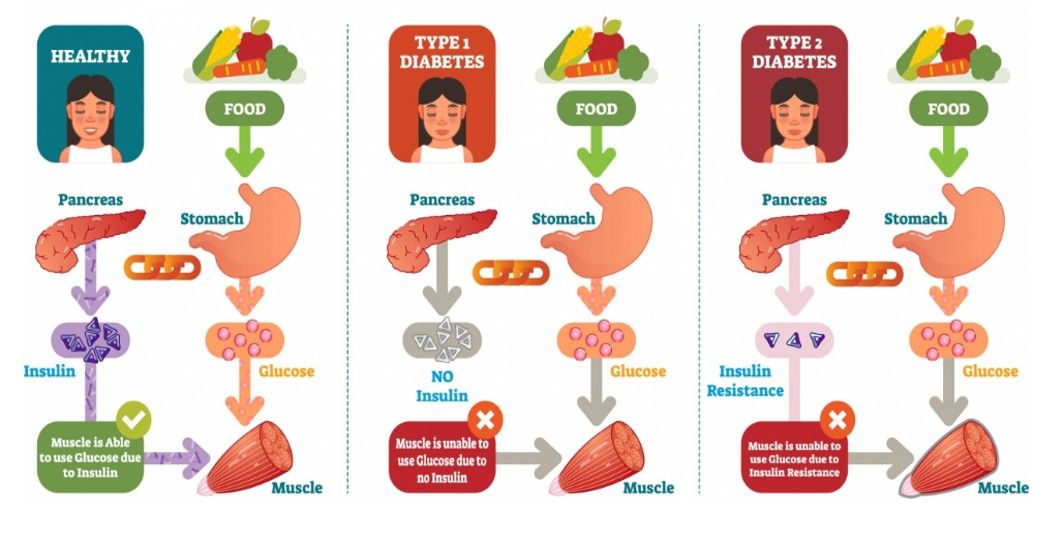Diabetes Management
How Can Individuals With Diabetes Protect Their Feet To Avoid The Risk Of Amputation?
2 min read
By Apollo 24|7, Published on - 05 August 2024
Share this article
0
0 like
.jpg?tr=q-80)
People coping with diabetes are often concerned about potential complications like foot ulcers that could lead to amputation. However, adopting a comprehensive foot care routine and managing blood sugar levels can significantly reduce this risk. Let's delve into some strategies that can help individuals with diabetes safeguard their feet.
Daily Foot Care
An essential part of foot health is daily inspection. This involves looking at your feet for signs of injury or infection such as blisters, redness, and swelling. If you have difficulty seeing certain areas, use a mirror or ask someone for assistance.
Maintaining foot hygiene is another vital step. Wash your feet daily using Lukewarm water and mild soap, and ensure they are dried well, especially between the toes. Applying a thin layer of petroleum jelly can prevent skin from cracking but it's best to avoid putting it between the toes.
Proper nail care is crucial too. When trimming toenails, cut straight across and avoid trimming them too short to prevent injury. Any corns, calluses, or warts should be handled by a professional podiatrist.
The choice of footwear also plays a significant role in foot health. Shoes should fit comfortably and offer adequate support. Always wear socks to protect your feet and avoid walking barefoot to prevent cuts or injuries.
Managing Diabetes
Effective management of diabetes is key in protecting feet. Regular blood sugar level monitoring, reducing stress, quitting smoking along with the right medication, exercise and diet helps keep it within a healthy range and this can be achieved through a balanced diet, regular exercise, and adherence to prescribed medications.
A diet rich in lean proteins, whole grains, fruits, and vegetables while limiting sugars and saturated fats aids overall health and supports wound healing. Regular check-ups with your doctor help monitor foot health and diabetes management. Finally, engage in regular physical activity to improve circulation and manage blood sugar levels.
Following these strategies reduces the risk of developing foot ulcers that can potentially lead to amputation. Remember, proper care and regular monitoring are integral parts of diabetes management.
Enrolling in the Apollo Super 6 programme can provide you with the necessary tools and support to effectively manage your diabetes. This comprehensive programme focuses on improving diet, increasing physical activity, and providing ongoing support.
Diabetes Management
Consult Top Diabetologists
View AllLeave Comment
Recommended for you

Diabetes Management
Breastfeeding Tips for Mothers with Diabetes
Breastfeeding while managing diabetes need not be a daunting task. With careful planning, it can be a beneficial journey for both mother and baby. Regular meals, smart snacking, and consistent monitoring of blood sugar levels are key strategies for successful breastfeeding. Remember, every journey is unique, so personalised advice from doctors is crucial. And remember, even as you navigate through this phase, the Apollo Super 6 programme is here to help you lead an active and healthy lifestyle.

Diabetes Management
Does Gestational Diabetes Lead to Type 2 Diabetes?
After childbirth, blood sugar levels in the mother typically normalize within six weeks. However, according to the Centers for Disease Control and Prevention (CDC), approximately 50% of women with gestational diabetes may develop type 2 diabetes later in life. The risk can be reduced by maintaining a healthy weight, making healthy food choices, and engaging in regular physical activity.

Diabetes Management
Understanding the Different Types of Diabetes
In a world where diabetes is increasingly common, understanding the different types can be crucial for early detection, effective management, and prevention of complications. Whether it's type 1, type 2, gestational, or even rare forms such as monogenic and secondary diabetes, each has its own causes and management strategies. Keep in mind that maintaining a healthy lifestyle is key to managing all forms of diabetes.
Subscribe
Sign up for our free Health Library Daily Newsletter
Get doctor-approved health tips, news, and more.
Visual Stories

8 Fruits That are Incredibly Healthy for Diabetes
Tap to continue exploring
Recommended for you

Diabetes Management
Breastfeeding Tips for Mothers with Diabetes
Breastfeeding while managing diabetes need not be a daunting task. With careful planning, it can be a beneficial journey for both mother and baby. Regular meals, smart snacking, and consistent monitoring of blood sugar levels are key strategies for successful breastfeeding. Remember, every journey is unique, so personalised advice from doctors is crucial. And remember, even as you navigate through this phase, the Apollo Super 6 programme is here to help you lead an active and healthy lifestyle.

Diabetes Management
Does Gestational Diabetes Lead to Type 2 Diabetes?
After childbirth, blood sugar levels in the mother typically normalize within six weeks. However, according to the Centers for Disease Control and Prevention (CDC), approximately 50% of women with gestational diabetes may develop type 2 diabetes later in life. The risk can be reduced by maintaining a healthy weight, making healthy food choices, and engaging in regular physical activity.

Diabetes Management
Understanding the Different Types of Diabetes
In a world where diabetes is increasingly common, understanding the different types can be crucial for early detection, effective management, and prevention of complications. Whether it's type 1, type 2, gestational, or even rare forms such as monogenic and secondary diabetes, each has its own causes and management strategies. Keep in mind that maintaining a healthy lifestyle is key to managing all forms of diabetes.


